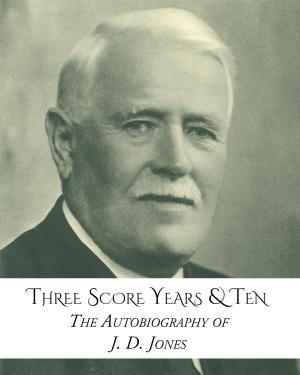The Economy of the Covenants Between Man and God: Comprehending a Complete Body of Divinity
A New Edition With The Life Of The Author; The Complete Set Of Two Volumes In Four Books
Nonfiction, Religion & Spirituality, Christianity, Christian Literature, Biography & Memoir, Religious| Author: | Herman Witsius | ISBN: | 1230001931112 |
| Publisher: | CrossReach Publications | Publication: | September 24, 2017 |
| Imprint: | Language: | English |
| Author: | Herman Witsius |
| ISBN: | 1230001931112 |
| Publisher: | CrossReach Publications |
| Publication: | September 24, 2017 |
| Imprint: | |
| Language: | English |
Herman Wits (or, as he is commonly called, Witsius) was descended from reputable parents. His father, Nicolaus Wits, was a gentleman universally esteemed by his fellow-citizens at Enkhuysen, to whom he endeared himself by his fidelity, modesty, justice, benevolence, and unaffected piety, in every character he sustained, either in the church or in the city; for in the former he was first a deacon, and afterwards a ruling elder, and treasurer in the latter. His mother was Johanna, a gentlewoman of great piety and prudence, the daughter of Herman Gerhard; who, after many dangers and distresses, obtained a calm and secure settlement in the church at Enkhuysen; where he preached the gospel for upwards of thirty years, with great reputation; and such was the affection he bore to his church, that he rejected the most profitable offers that were made to him.
The parents of our Witsius, having vowed to devote a child to the ministry, did, upon the birth of this son, call him after his grandfather, praying that in Herman, the grandson, might be revived the spirit of the grandfather; and that, endued with equal, if not superior talents, he might imitate his example.
Herman Witsius was born on the 12th of February, 1636, at Enkhuysen, a town of West Friesland; one of the first that threw off the Spanish yoke, asserted their own liberty, and, once enlightened with the truths of the gospel, retained the purity of worship ever after, and in the very worst times of Arminianism, continued, above many, stedfast in the faith. And though it was a place noted for trade and navigation, yet it produced men famous in every branch of literature. So that Witsius, even in his native place, had illustrious patterns to copy after.
Herman Wits (or, as he is commonly called, Witsius) was descended from reputable parents. His father, Nicolaus Wits, was a gentleman universally esteemed by his fellow-citizens at Enkhuysen, to whom he endeared himself by his fidelity, modesty, justice, benevolence, and unaffected piety, in every character he sustained, either in the church or in the city; for in the former he was first a deacon, and afterwards a ruling elder, and treasurer in the latter. His mother was Johanna, a gentlewoman of great piety and prudence, the daughter of Herman Gerhard; who, after many dangers and distresses, obtained a calm and secure settlement in the church at Enkhuysen; where he preached the gospel for upwards of thirty years, with great reputation; and such was the affection he bore to his church, that he rejected the most profitable offers that were made to him.
The parents of our Witsius, having vowed to devote a child to the ministry, did, upon the birth of this son, call him after his grandfather, praying that in Herman, the grandson, might be revived the spirit of the grandfather; and that, endued with equal, if not superior talents, he might imitate his example.
Herman Witsius was born on the 12th of February, 1636, at Enkhuysen, a town of West Friesland; one of the first that threw off the Spanish yoke, asserted their own liberty, and, once enlightened with the truths of the gospel, retained the purity of worship ever after, and in the very worst times of Arminianism, continued, above many, stedfast in the faith. And though it was a place noted for trade and navigation, yet it produced men famous in every branch of literature. So that Witsius, even in his native place, had illustrious patterns to copy after.















